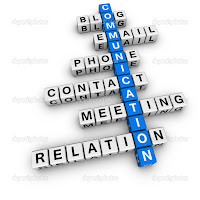Tips for Preparing for the MAP Tests
 This week is the second week of our MAP
Fall testing session. The Measure of Academic Progress -- or MAP as it is
generally known-- is a computer-generated test. The MAP was designed to measure
primary student-level knowledge in reading and math. Each student takes a
unique test because the program is designed to ask progressively more difficult
questions if a student answers correctly, or ask easier ones if the opposite is
true. The results of the MAP tests help students, parents and educators plan
accordingly
This week is the second week of our MAP
Fall testing session. The Measure of Academic Progress -- or MAP as it is
generally known-- is a computer-generated test. The MAP was designed to measure
primary student-level knowledge in reading and math. Each student takes a
unique test because the program is designed to ask progressively more difficult
questions if a student answers correctly, or ask easier ones if the opposite is
true. The results of the MAP tests help students, parents and educators plan
accordinglyInvolving all the stakeholders -- students, parents, teachers, administrators -- presents a "united front" in preparing for the MAP. Everyone's being actively involved in the lead-up to the MAP test will result in less stress and higher scores. Working with the free online preparation tests will help parents better understand the standardized test their child is taking.
If parents
help their children with their homework and monitor the progress, students will
develop a better knowledge base. The math section, for example, assesses
general math as well as concepts and processes. The IXL skills our Elementary
Students have been practicing is a great way for students to prepare for the
MAP assessments.
With online practice tests, students can become familiar
with the format and the expectations. Students need to understand how to answer
multiple-choice questions on a computer generated test. For example, they can
click on different answers, but once they press "go" they cannot
change their minds. The more they practice with the genre, the more comfortable
they will be with it.
 In
preparation for the MAP, students should get a good night's sleep and have
breakfast before taking the tests. Like any activity that requires mental
concentration, the MAP is best taken when refreshed.
In
preparation for the MAP, students should get a good night's sleep and have
breakfast before taking the tests. Like any activity that requires mental
concentration, the MAP is best taken when refreshed.
If you would
like to help your child prepare for these assessments, select a link below
(math or reading practice) and click on the score ranges your child received on
the last MAP assessment. (Please contact your child’s teacher if you do
not know your child's last MAP scores.) This will direct you to leveled
activities that are appropriate practice for upcoming MAP assessments.
Math
practice leveled by MAP scores http://www.sowashco.k12.mn.us/ro/Pages/studentlinks/map/
Reading practice leveled by MAP scores
http://www.sowashco.k12.mn.us/ro/pages/studentlinks/map/reading.htm
Reading practice leveled by MAP scores
http://www.sowashco.k12.mn.us/ro/pages/studentlinks/map/reading.htm



